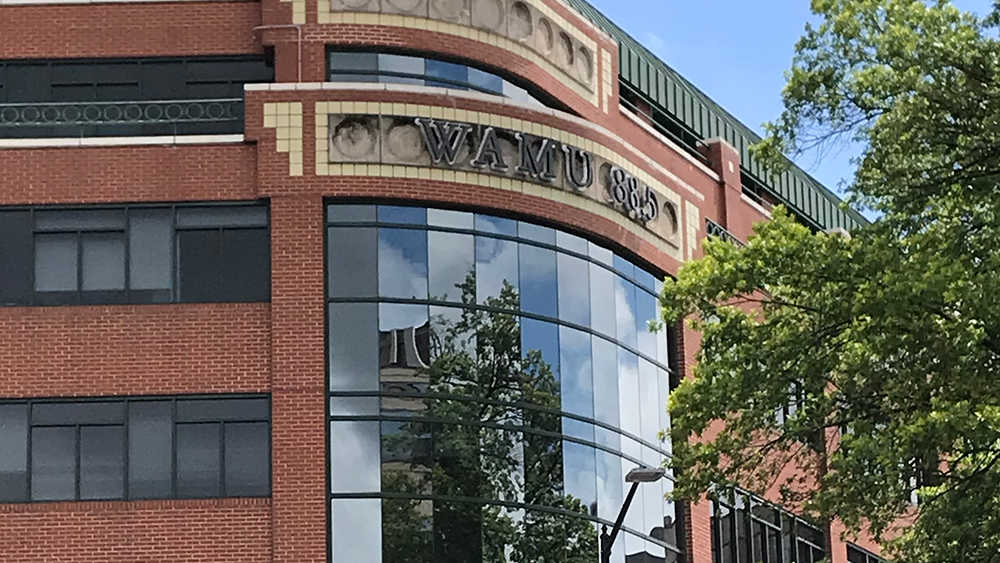WAMU seeks buyer for bluegrass stream and stations
WAMU in Washington, D.C., is looking to sell Bluegrass Country, the music service that it streams online and broadcasts on FM in the Washington area.
The station announced Thursday that it has launched a search for a buyer to take over Bluegrass Country. If it fails to find one by Dec. 31, the service will sign off.
In a post on Bluegrass Country’s website, WAMU said a “media strategic consulting company” advised that its listeners mainly want news and information from the station. That format airs on WAMU’s primary FM signal.
The consultants were Public Media Co. and Atlantic Media Strategies, according to the Washingtonian.
PMC “basically noted the huge demographic changes that have occurred in the Washington market over the past 20 years or so and said, ‘Look, your future is going to be much better on the news and information side than on the country side of operations,’” WAMU General Manager J.J. Yore told Washingtonian. “And they painted a picture that made it clear to us that we had some tough decisions to make.”
WAMU aired bluegrass on weekday afternoons until 2001, when it moved the music to an HD Radio channel and a web stream. It later put the service on an FM station. A WAMU spokesperson told Washingtonian that Bluegrass Country was losing money for years, with an operating fund deficit of $142,000 in fiscal year 2016.







Sick.
Here’s the e-mail I sent to WAMU:
“You have missed the entire point of public radio. You have strayed far off the path, and once again you are trying to emulate the for-profit world in a situation where that is wildly inappropriate.
You are supposed to serve the public good, not obsess over how many listeners you can get with news/talk versus other types of programming. That’s not what non-commercial radio should be about.
For example, nobody would have expected WFMU, an incredible free-form station, to make it this far. It has a small but very loyal worldwide audience. When under threat, it worked hard to expand its fundraising operations. Its core audience became more generous. Artistically, it has thrived. Financially, it has merely survived. It is widely acknowledged as one of the best and most groundbreaking radio stations on the planet. It wouldn’t be enough for a money-obsessed NPR station, though.
If you had tried harder to copy this strategy, Bluegrass Country could at least be breaking even.
You could get more money from each listener rather than obsessing over how many potential new listeners you might be able to get. Instead you waste money on sleazy overpaid consultants who suck the life from public radio by advising you to homogenize everything and chase as many listeners as possible. These vampires have been at it for a while now and you still haven’t caught on that their goal is to drain you dry. You keep inviting them back to suck more blood from your neck.
You’ve made it clear you only care about money. Don’t expect support from listeners who prefer non-commercial radio that actually acts non-commercial.
Why are the decision-makers at WAMU even working in the world of non-commercial radio? There are plenty of slick startups and hedge funds you could be working for.”
Don’t you think that serving the public should involve getting a sense of what the public wants, and then focusing on giving that to them? Isn’t that exactly what WAMU has done?
When is it enough? When does the canned, focus-grouped-to-death, assembly-line thinking end? Why not just switch to an oldies format, then, or play the audio of the pledge drive music specials from PBS? Wouldn’t that be even more popular? At some point you have to strike a better balance between the size of your audience and actually serving the public good with arts programming that you won’t hear anywhere else. That’s the real purpose of non-commercial radio, and it’s been forgotten almost everywhere, especially by NPR stations, but also by colleges who have become short-sighted and are selling off their radio stations.
“Why not just switch to an oldies format, then, or play the audio of the pledge drive music specials from PBS? Wouldn’t that be even more popular?”
Probably, yeah. But it would also suck, and that’s why WAMU isn’t doing it. You’re absolutely right that they have to strike a balance between service and ratings; you just disagree with them about where that balance point is. That’s perfectly legitimate, but you’re wrong to allege that WAMU has fully abandoned service in pursuit of ratings.
WAMU is making an enormous new investment in local news programming. That costs money. If the choice is between funding some of that work and perpetuating a relatively low-rated bluegrass station that mostly just plays CDs that people can find on their own, I’d chose WAMU’s path every time.
Stations can’t make programming decisions based primarily on the feedback of letter writers like you — it ends up being the tyranny of the squeaky wheel. If you’re a person of science, I’d hope you’d agree that stations should rely more on empirical measures rather than anecdotes, and those measures are provided by the consultants whom you so loathe.
I certainly respect your opinion, but we clearly have fundamentally different opinions on the value of vital human music curation, i.e. playing “CDs that people can find on their own”, vs. more talk. Local news programming is certainly important, but I wish there was a way to prioritize music as well, especially unusual music that people don’t even know they might like until they stumble across it on the radio (and that does still happen, though perhaps less often then it used to).
This may all be a moot point. Perhaps online radio algorithms will doom all human-operated non-comm music services ultimately (except for WFMU, since glorious free-form and its brilliant segues can’t be done with an algorithm). WFMU and a few essential college radio outlets will probably the last ones standing while Skynet (ha ha… sigh) gobbles up the rest.
A quick bit of googling suggests you may be based in Georgia. What are your thoughts on the NPR Borg assimilating WRAS? I assume you were in favor of GPB throwing out the students so that they could needlessly duplicate Morning Edition and ATC in that market. Actually, I’m surprised and impressed that they apparently left the students on air from 7 p.m. to 5 a.m., assuming that’s still the case, though perhaps it’s not — GPB’s website is basically a dumpster fire, so there’s no way to know.
What’s with this “NPR Borg” crap? In case you didn’t know, NPR doesn’t own any stations. Effectively, it’s the stations that run the network, not the other way around. If resistance was so damn futile, how come NPR can’t air its flagship shows on its Sirius XM channels and why don’t they promote their podcasts on-air? Because the stations wouldn’t let NPR run those shows and NPR chose to not go up against the stations that refuse to realize that podcasting is what public media is becoming now. If most public radio news/talk stations are similar, that’s because it’s what the people who actually contribute to the stations want. Perhaps if you actually spent some time reading this site, you’d learn something–including that Adam does this site’s podcast, which uses GPB facilities.
Educational radio is no longer. The frequencies were hijacked by a new organization called National Public Radio. Now it is about the biggest non-educational audience they can find. In place of a well-educated scholar of old-time music (yes, he calls it obsolete music), we have NPR pushing reruns of dead car-talks and even BBC news. Local? BBC? Really? Scholarship is out spending money is in. It is time the tax law is changed so WAMU and others who have given up on educational radio have to defend being able to dismiss education and substitute anything anyone might want to pay for. Let us put the students back on the air and get JJ another job..
I was still working for GPB at the time of the WRAS deal, and left soon after. Those events were unrelated, I’m just mentioning that for the sake of disclosure. I think the old WRAS was not a very good use of an FCC license of that scale in a market the size of Atlanta. Maybe it really was a great radio station in the 80s (don’t know, wasn’t there), but it wasn’t anymore by the time all this stuff went down. I think GPB’s use of that incredibly powerful transmitter/license is better, though there are many things about it that aren’t ideal. There remains too much duplication of service with WABE (though less than is commonly believed), but I also understand why that duplication is a practical necessity. I think if half the people who got righteously indignant about Georgia State’s deal with GPB had actually LISTENED to the old WRAS, the deal never would have happened. And I was (and still am) frustrated with the critics who chastise Georgia State admins for doing what they believed was in the best interest of their institution and its mission with a resource that they own and for which they are responsible. Maybe it was a wrong choice, but the allegations of greed or corruption were (and are) utterly unsubstantiated.
Interesting. Thank you for taking the time for such a detailed and thoughtful response.
Even WETA has a classical NPR station.
“Small but loyal.” How many times has that phrase been invoked by boards, managers and programmers who refused to abandon their navel-gazing ways?
Let’s save bluegrass in D.C.!!!